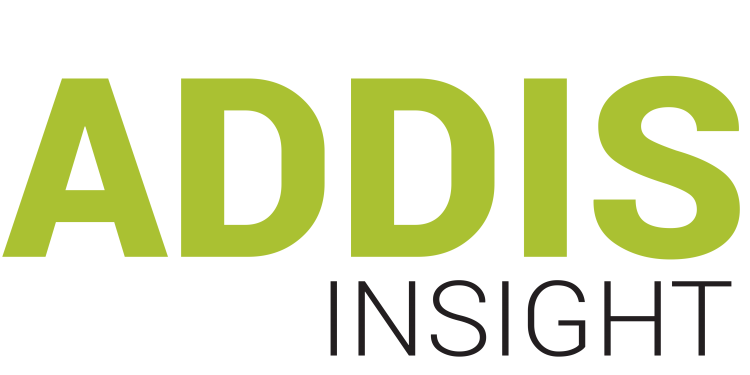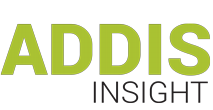By: Yinebeb Bahru
Large language processing models (LLPMs) are sophisticated artificial intelligence systems that can comprehend and generate natural language texts. These models are often used for various tasks such as machine translation, text summarization, sentiment analysis, question answering, and more. LLPMs are transforming the way we communicate, think, and work, and they could have significant implications in various fields, including business, medicine, education, and the arts. Millions of users utilize them to produce content that resembles that of humans, including writing, photographs, videos, and audio. However, LLPMs also pose significant risks such as manipulation, fake news, deepfakes, and harmful/hate speech. These risks could jeopardize the reliability and quality of online information.
Some of the challenges and risks associated with LLPMs include:
- Deepfake: Large language processing models can generate deepfake audio clips by using self-supervised audio models that learn to generate realistic speech and music by listening to audio only. These models can capture both local and global structures of audio, such as phonetics, syntax, semantics, melody, harmony, and rhythm. To create an audio deepfake, clear recordings of a speaker, preferably without interruptions, ambient or background noise, are needed. And the more such material is available, the better the audio deepfake will be.
- Misinformation: LLPMs can be used to create or spread false or misleading information online, such as fake news, rumors, conspiracy theories, propaganda, etc. This can have negative impacts on public opinion, social cohesion, democracy, and security.
- Hate speech: LLPMs can be used to generate or amplify hateful or abusive language online, such as insults, threats, discrimination, incitement to violence, etc. This can have negative impacts on human dignity, social harmony, mental health, and human rights.
Hate speech and misinformation have become major issues in Ethiopian internet forums, especially in social media and even in mainstream media. In recent years, there have been several instances of targeted hate speech and online harassment towards specific ethnic and religious groups, resulting in real-world violence, property damage, displacement, loss of life, and even full-scale civil war.
Ethiopia is a country in East Africa with a population of over 110 million people and a diverse linguistic and cultural landscape. According to the latest data from DataReportal, there were 29.83 million internet users in Ethiopia in January 2022, representing a 25% penetration rate of the total population. This means that Ethiopia has a large and growing online community that can benefit from or be harmed by large language processing models.
The widespread hate speech among Ethiopian internet users is due in large part to the country’s complex socio-political landscape and long history of ethnic tension. When I was a sophomore student at Arsi University, I witnessed students fighting among one another based on ethnicities, which was a direct result of Ethiopia’s political system that is based on ethnic identities. After completing my bachelor’s degree, I returned to my hometown Injibara, which is near Metekel in the northwestern part of the country. There, I observed the effects of war on internally displaced people and the continuing effect of the war on socio-economic realities.
The federal arrangement dictates that one ethnic group should be dominant in one region, but only subnational units have elevated ethnic identities to a primary political identity. Surprisingly, in some regions ethnic minorities are dominant. This causes problems because it implies that regionally, the majority won’t have the same rights as the minority of citizens, which leads to highly escalated identity-based conflicts across the country. People are often quick to turn to social media to express their grievances or to amplify incendiary rhetoric, leading to a vicious cycle that only further exacerbates these tensions.
Another reason for the widespread hate speech is the anonymity of public figures in their personal social media accounts, which can give people the sense that they can say whatever they want without consequences. It is also worth noting that the majority of political groups have used social media as a means to spread propaganda and disinformation, further fueling the flames of division.
As an example, the majority of state-affiliated media reported the so-called evidence used to support the claim that Mr. Girma Yeshitila, a high-ranking official of the ruling Prosperity party, was killed by Fano militants, according to new evidence from Digi Forensic experts. However, this evidence was a fabrication (deepfake) using AI and not actual proof.
Another best example, The audio, released by Kello Media, an online media outlet based in the US, on May 31, 2021, contains provocative statements attributed to the Prime Minister Abiy Ahmed at Prosperity Party meeting, such as the claim that they won the election easily and that no one will be able to form a government in the coming 10 years. However, fact check experts have verified that the audio is a fake compilation created by editing different remarks made by the Prime Minister at different times. Without access to the original source and a thorough analysis of the voice and context, it is difficult to determine the veracity of the audio.
Another big problem is Illiteracy, illiteracy is a major challenge in Ethiopia, with only 51.77% of adults being literate, according to the World Bank’s report from 2017. The illiteracy rate is higher among women, with over 57% of Ethiopian women and approximately 30% of men in the working age group (15-45 years old) being illiterate. This poses a significant problem for the country, as illiteracy can contribute to the spread of misinformation and disinformation, especially through social media and other digital platforms.
People who can’t read and write may have difficulty critically evaluating the sources, credibility, and accuracy of the information they receive. They may also rely more on oral communication, which can be easily distorted or manipulated by those with malicious intentions. Additionally, illiteracy can limit access to quality information and education that can help people develop media and information literacy skills. These skills are essential for identifying and combating fake news, disinformation, and misinformation.
To address this issue, Ethiopia needs to be more investment in education and literacy programs, particularly for women and marginalized groups. The government and other stakeholders should also work to improve access to quality information and media literacy resources, including through digital platforms. By improving literacy rates and media literacy skills, Ethiopia can better equip its citizens to navigate the complexities of online information and combat the spread of misinformation and hate speech.
Ethiopia can mitigate the negative impacts of illiteracy on the spread of misinformation and disinformation by:
- Investing in literacy programs: Ethiopia can invest in literacy programs to improve the adult literacy rate and reduce the gender gap in literacy. This can involve expanding access to quality education and literacy programs, especially in rural areas where illiteracy rates are higher.
- Promoting media and information literacy: Ethiopia can promote media and information literacy education for its citizens, especially those who are illiterate. This can involve educational programs that teach critical thinking, digital literacy, and media literacy.
- Supporting fact-checking organizations: Ethiopia can support fact-checking organizations that can help identify and debunk misinformation and disinformation, especially those that target illiterate populations.
- Encouraging responsible communication: Ethiopia can encourage responsible communication practices that prioritize accuracy, transparency, and accountability, especially among those who communicate with illiterate populations.
- Conducting research: Ethiopia can conduct research on the impact of illiteracy on the spread of misinformation and disinformation, and use this information to develop effective strategies to combat these issues.
Overall, Ethiopia can take a multi-pronged approach to address the issue of illiteracy and its impact on the spread of misinformation and disinformation. This can involve investing in literacy programs, promoting media and information literacy, supporting fact-checking organizations, encouraging responsible communication practices, and conducting research. By doing so, Ethiopia can help its citizens to develop the skills and knowledge necessary to combat the spread of misinformation and disinformation and promote a more informed and engaged society.
Yinebeb Bahru is a Training Associate for Dutch based consulting firm R&D Group Ethiopia office, and he’s passionate about technology, start-up’s, innovation, Finance, writing analysis, research & development. The writer can be reached at: Yinebeb251@gmail.com. The views expressed in this article don’t necessarily reflect the views of addisinsight.net.





[…] Source link […]